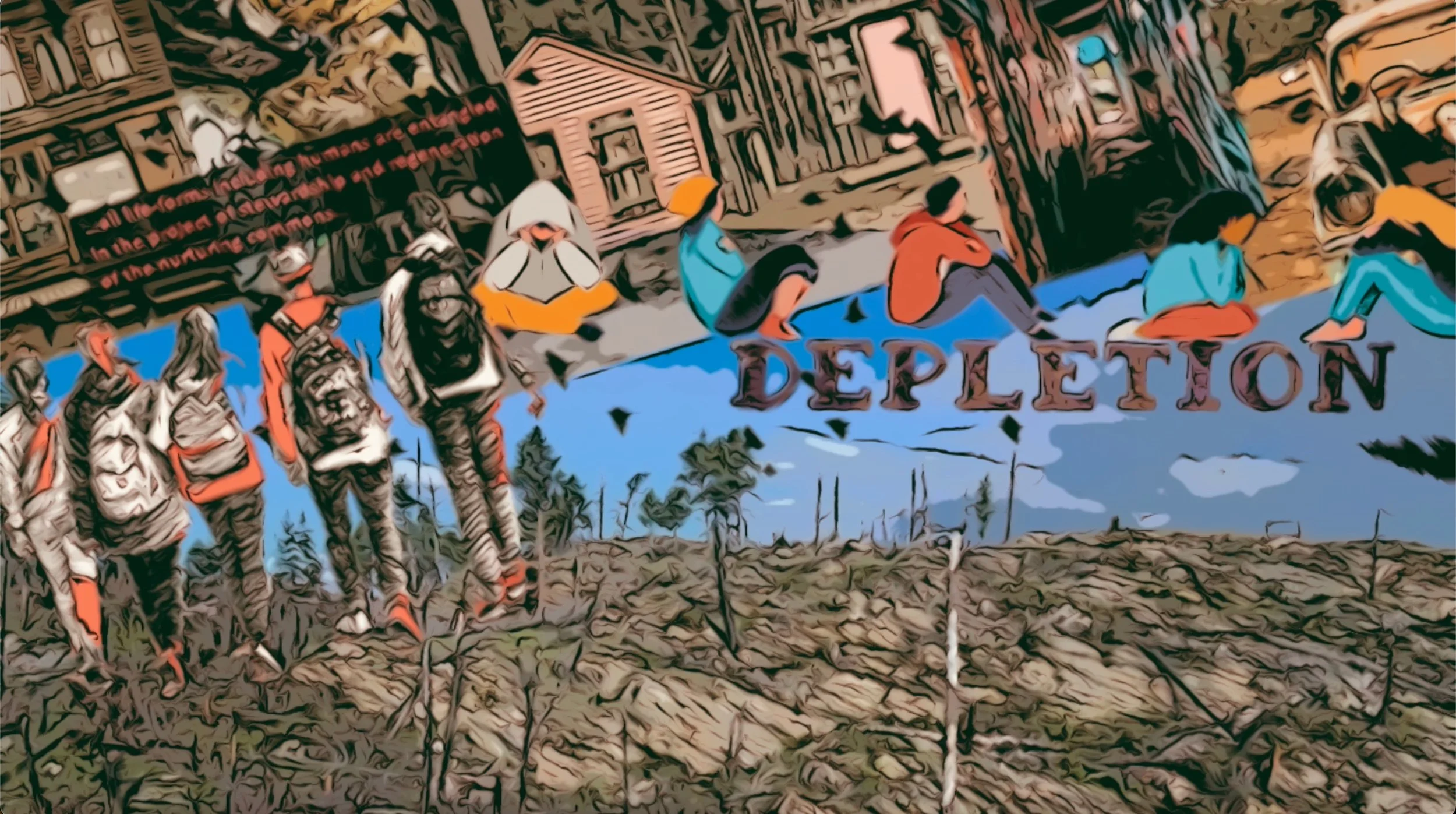

Depletion:The End of Life
In the last fifty years, enabled by modernism/coloniality and capitalist governance policy, big corporations have gone to global territories and completely depleted forests, soils, rivers, water tables, fisheries, carbon sinks, and mineral deposits, destroying livelihoods while earning multiple millions of dollars. The externalities from these enterprises have led to sacrifice areas of toxic waste, polluting air, oceans, marshlands, neighborhoods, and drinking water, creating dead zones that according to current environmental policy, they are not responsible for preventing or cleaning up. From the point of view of relational ontologies, all life-forms including humans are entangled in the project of stewardship and regeneration of the nurturing commons in the home territories where they dwell. Caring relationship, close observation, and intentional conservation practices have allowed many indigenous communities to forage in the same regions for millennia without depletion. No one should have the right to the destruction of the commons the world depends on for survival. Members of sovereign Indigenous territories have taken the lead in protecting and regenerating diverse ecosystems of kinship from depletion. They are not asking for a return to the past, but for a better future informed by both traditional ecological knowledges (TEK) and contemporary relational sciences. Life on earth will face extinction if we cannot change the current path of development.
Resource: Indigenous Environmental Justice by Karen Jarrett-Snider and Marianne Nielson
Ancient Futures by Helene Norberg Hodge
In photos: See old-growth go from stand to stump on B.C.’s Vancouver Island by Carol Linnitt, Photos by TJ Watt. The Narwhal.ca

